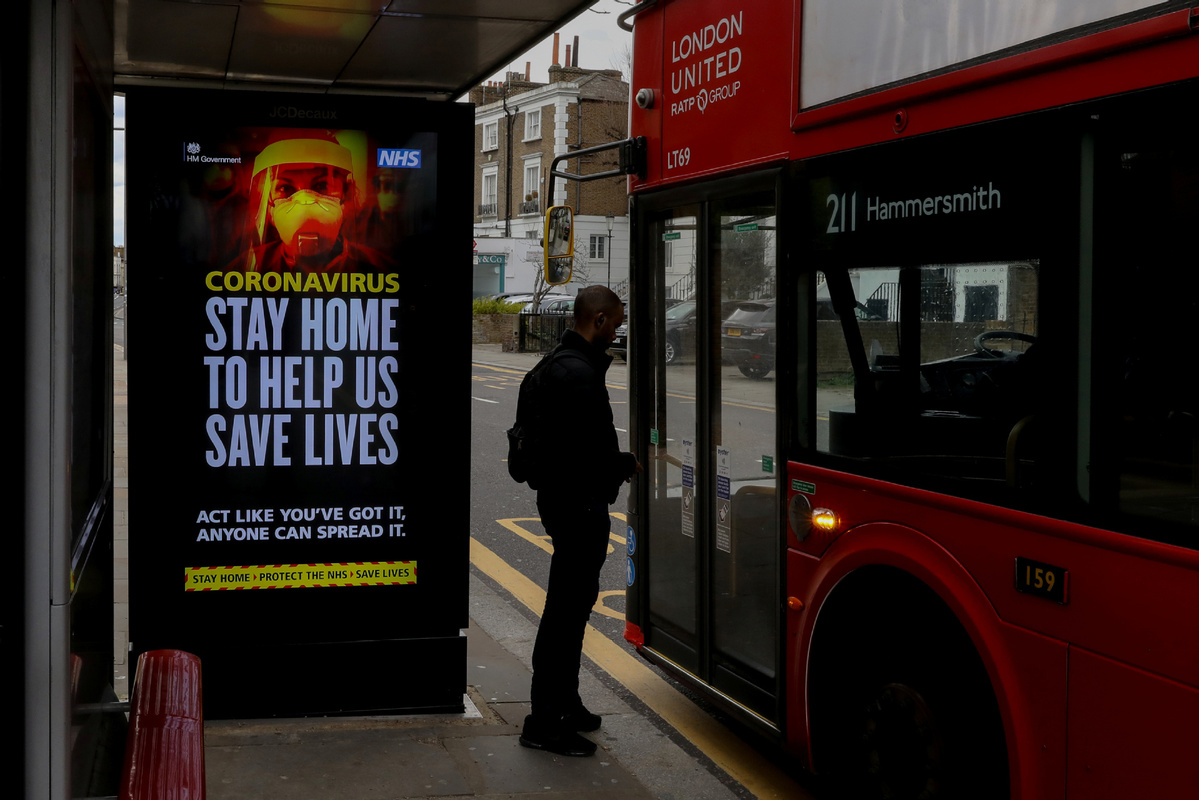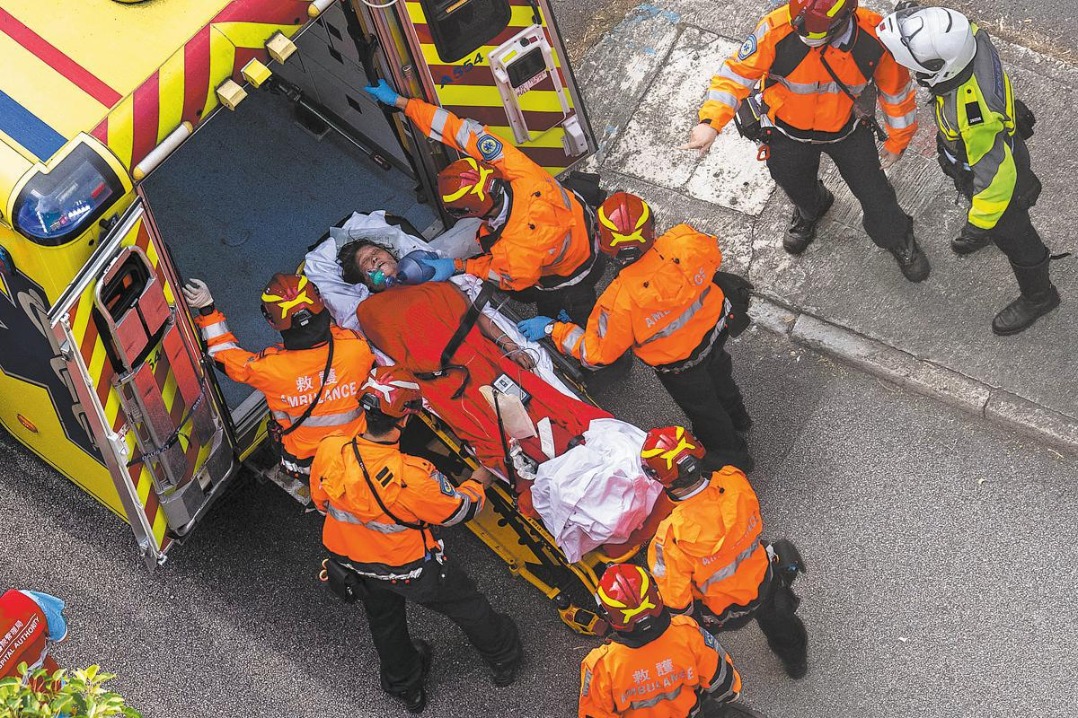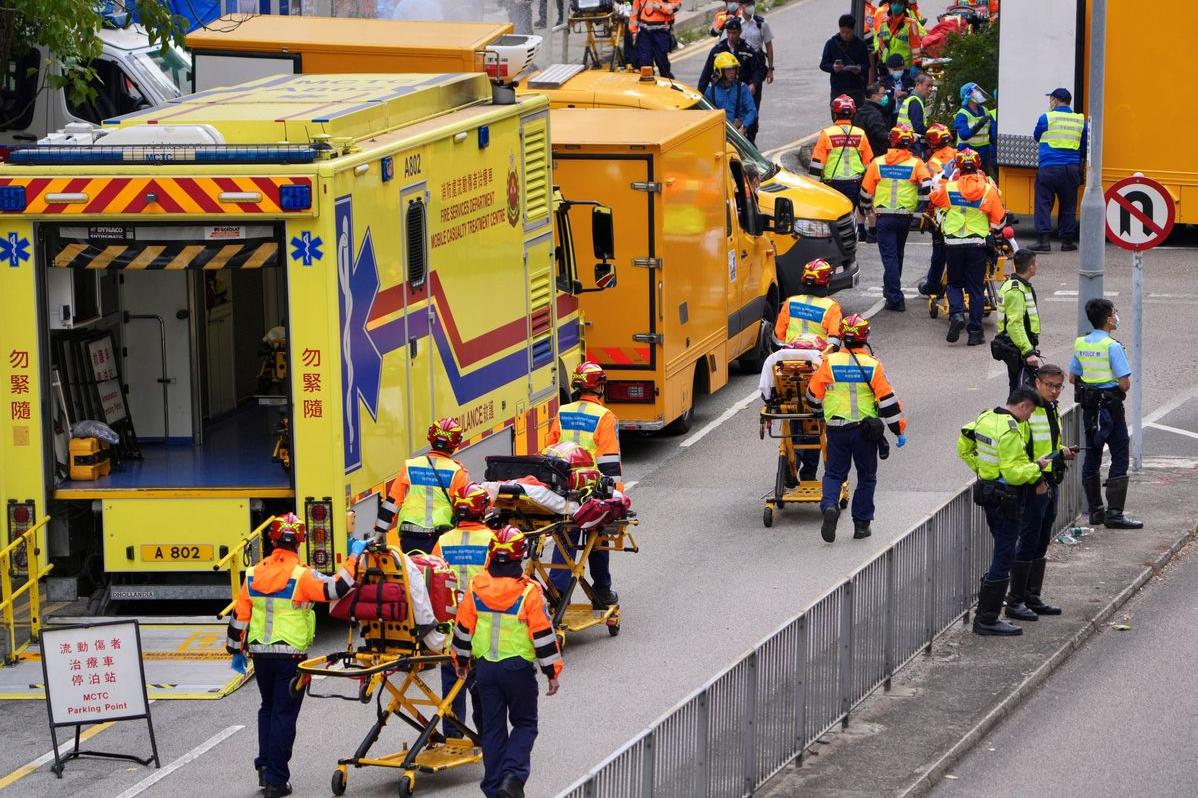UK lockdown 'could have saved' more
By JULIAN SHEA in London | China Daily Global | Updated: 2020-04-03 09:04

Spain's virus woes added to by major rise in unemployment of 900,000
A scientist at the Sanger Institute of genomic health research in Cambridge has said the introduction of an earlier lockdown could have led to a significantly reduced novel coronavirus epidemic in the United Kingdom.
Figures released on Thursday revealed that the death toll in Britain had reached 2,921, an increase of 569 people on the figure from 24 hours earlier.
In a thread of tweets, research group leader Inigo Martincorena said a "simplistic" analysis of data he had seen highlighted the importance of lockdown and how much difference could have been made if Prime Minister Boris Johnson had introduced it earlier than he did, on March 23, two weeks after similar measures were imposed in Italy, Europe's worst-hit country.
The data, he said, "suggests that a lockdown one week earlier could have led to an epidemic (around three) times smaller (likely translating into many thousands fewer deaths and the need for a shorter and less disruptive lockdown)".
Johnson himself remains in self-isolation six days after being diagnosed, as he continues to show symptoms.
At the daily Downing Street media briefing, Health Secretary Matt Hancock said 13.4 billion pounds ($16.6 billion) of historic National Health Service debts will be written off to enable it to fight the virus better.
He said the government's action plan would slow down the spread of the virus, and that it was committed to reaching its mid-April target of 25,000 tests, and also set a fresh target of 100,000 for the end of the month. Pharmacists across the UK could be permitted to hand out controlled drugs without prescription in a bid to ease stress on the NHS.
Home Secretary Priti Patel is seeking advice on the risks of lifting restrictions imposed by the Misuse of Drugs Act, although should the rules be changed, they would only apply to people who are already receiving the medication as part of existing treatment.
A survey carried out by the British Chambers of Commerce, or BCC, has revealed that almost half of businesses expect to furlough around 50 percent of their workforce in the next week, which could leave the Treasury with a huge wages bill to pick up.
Furloughing is a temporary unpaid leave of absence from work, where workers are not paid by their employers, but their position is kept open for them to return.
Under Chancellor Rishi Sunak's job retention scheme, the government will pick up the bill for 80 percent of wages, up to 2,500 pounds per month.
In the survey of 600 companies, 44 percent said they thought it likely they would be furloughing more than half of their staff in the next week.
The crisis has also highlighted how many companies do not have significant financial reserves to call upon, and BCC director general, Adam Marshall, said while he welcomed the government's actions, they needed to happen faster.
"The coronavirus pandemic has taken a heavy toll on business and economic activity across the UK," he said.
"While businesses have welcomed the unprecedented size and scope of the government support packages, our findings highlight the urgent need for that support to reach businesses on the ground as soon as possible. The majority of firms cannot wait weeks or months for help to arrive."
The country's fee-paying private school sector is also feeling the financial strain, as parents who have lost income cancel their direct debits and parents of overseas pupils reconsider sending their children back to the UK.
Some are even offering up to 50 percent discounts on fees for the summer term, The Guardian reported, as they will only be able to offer distance learning, amid fears that some of the smaller schools may be driven out of business altogether.
According to the Independent Schools Council, its member schools have around 55,000 overseas pupils, with around 10,000 of those being from China.
"We don't know how many of the children want to come back, and even if they do want to come back, whether they will be able to leave their country, or whether their country is still going to be in lockdown," said Neil Roskilly, chief executive of the Independent Schools Association.
"The vast majority are saying they want to come back if they can. They just don't know what the situation's going to be."
Elsewhere, an infectious disease specialist has told a London discussion group that new research from Hong Kong may result in the World Health Organization reappraising its guidelines on the wearing of face masks, as they could be more useful in fighting the spread of the virus than previously believed.
Currently, the official policy is that their main benefit is to healthcare workers, to protect them from contracting infections from patients, as many members of the public use them incorrectly.
"But as the evidence becomes available, it seems there will be a debate trying to decide whether masks play a role at some point in the outbreak," said David Heymann, a WHO advisor.
"And believe me, if they do, there is a private sector healthy enough to begin producing those masks in quantities necessary."
The death toll in Spain has now passed 10,000, at the same time as newly released figures revealed that March saw Spain's highest-ever monthly rise in unemployment, with almost 900,000 people having lost their jobs since the lockdown began.
Belgium's death toll has passed 1,000, and the situation in Italy is even worse.
In addition to the death toll as of Thursday having reached nearly 14,000, Italy's main business association has warned that industrial output, which in the first quarter of 2020 suffered its biggest drop in 11 years, could fall by up to 15 percent in the second quarter.
























